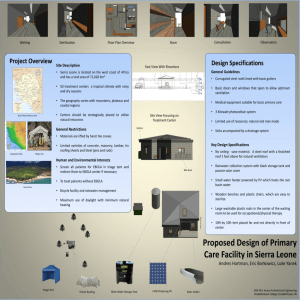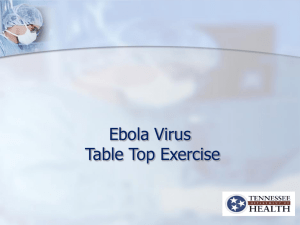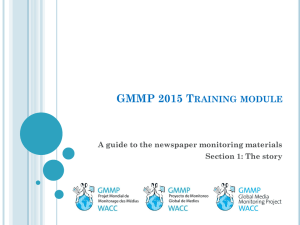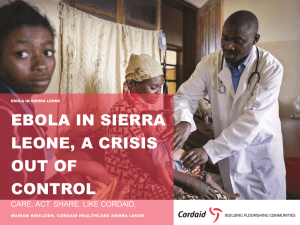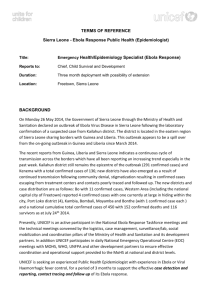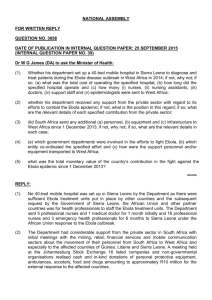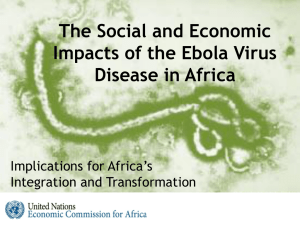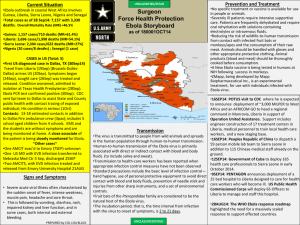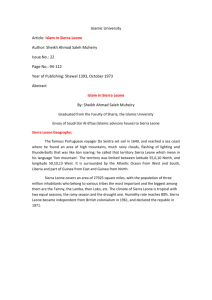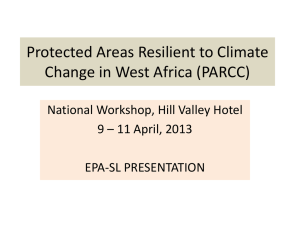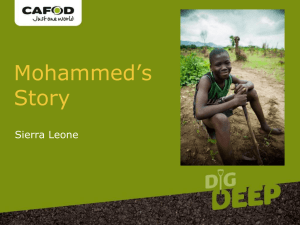UK Ebola Response Strategy
advertisement
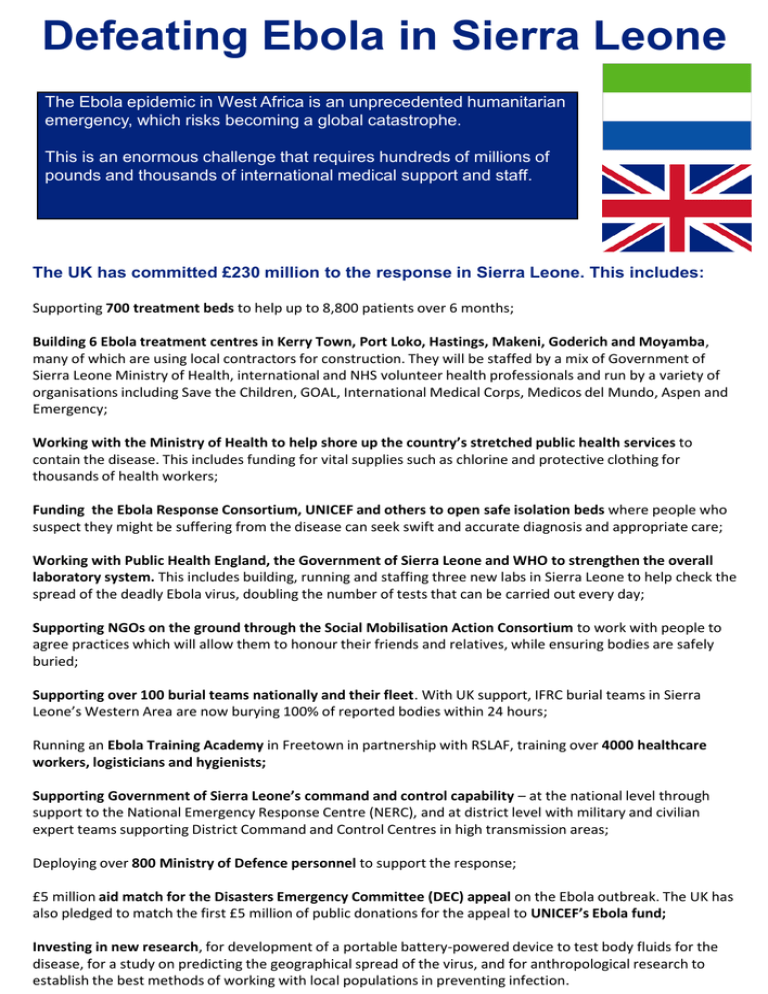
Defeating Ebola in Sierra Leone The Ebola epidemic in West Africa is an unprecedented humanitarian emergency, which risks becoming a global catastrophe. This is an enormous challenge that requires hundreds of millions of pounds and thousands of international medical support and staff. The UK has committed £230 million to the response in Sierra Leone. This includes: Supporting 700 treatment beds to help up to 8,800 patients over 6 months; Building 6 Ebola treatment centres in Kerry Town, Port Loko, Hastings, Makeni, Goderich and Moyamba, many of which are using local contractors for construction. They will be staffed by a mix of Government of Sierra Leone Ministry of Health, international and NHS volunteer health professionals and run by a variety of organisations including Save the Children, GOAL, International Medical Corps, Medicos del Mundo, Aspen and Emergency; Working with the Ministry of Health to help shore up the country’s stretched public health services to contain the disease. This includes funding for vital supplies such as chlorine and protective clothing for thousands of health workers; Funding the Ebola Response Consortium, UNICEF and others to open safe isolation beds where people who suspect they might be suffering from the disease can seek swift and accurate diagnosis and appropriate care; Working with Public Health England, the Government of Sierra Leone and WHO to strengthen the overall laboratory system. This includes building, running and staffing three new labs in Sierra Leone to help check the spread of the deadly Ebola virus, doubling the number of tests that can be carried out every day; Supporting NGOs on the ground through the Social Mobilisation Action Consortium to work with people to agree practices which will allow them to honour their friends and relatives, while ensuring bodies are safely buried; Supporting over 100 burial teams nationally and their fleet. With UK support, IFRC burial teams in Sierra Leone’s Western Area are now burying 100% of reported bodies within 24 hours; Running an Ebola Training Academy in Freetown in partnership with RSLAF, training over 4000 healthcare workers, logisticians and hygienists; Supporting Government of Sierra Leone’s command and control capability – at the national level through support to the National Emergency Response Centre (NERC), and at district level with military and civilian expert teams supporting District Command and Control Centres in high transmission areas; Deploying over 800 Ministry of Defence personnel to support the response; £5 million aid match for the Disasters Emergency Committee (DEC) appeal on the Ebola outbreak. The UK has also pledged to match the first £5 million of public donations for the appeal to UNICEF’s Ebola fund; Investing in new research, for development of a portable battery-powered device to test body fluids for the disease, for a study on predicting the geographical spread of the virus, and for anthropological research to establish the best methods of working with local populations in preventing infection.
